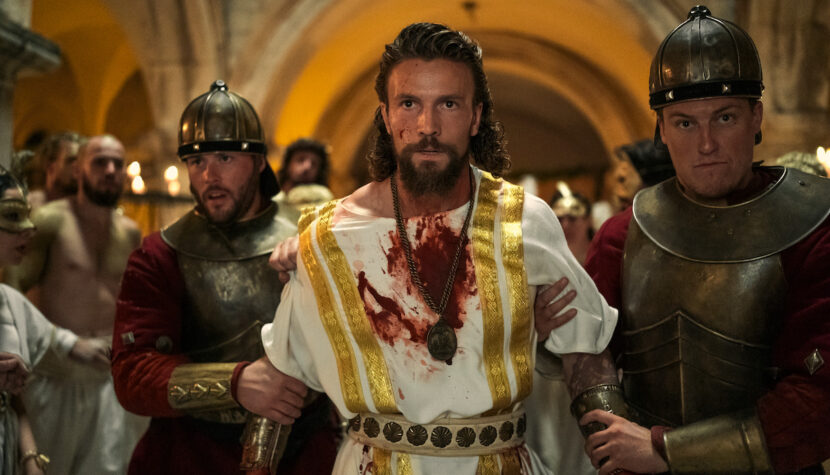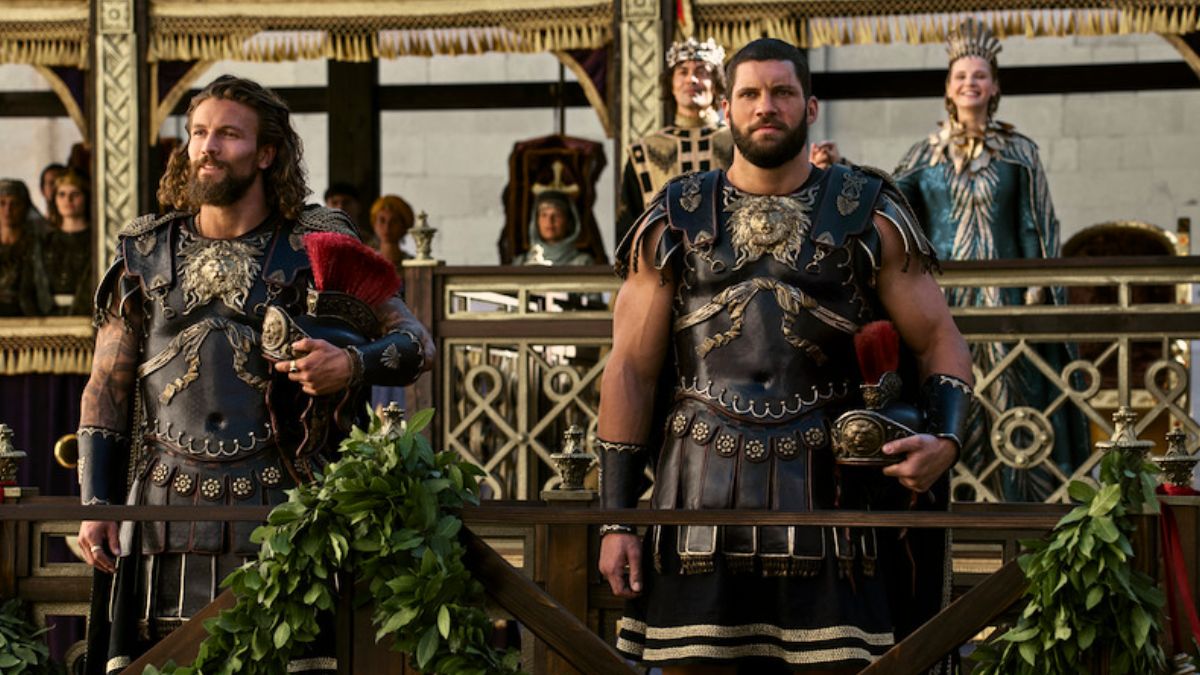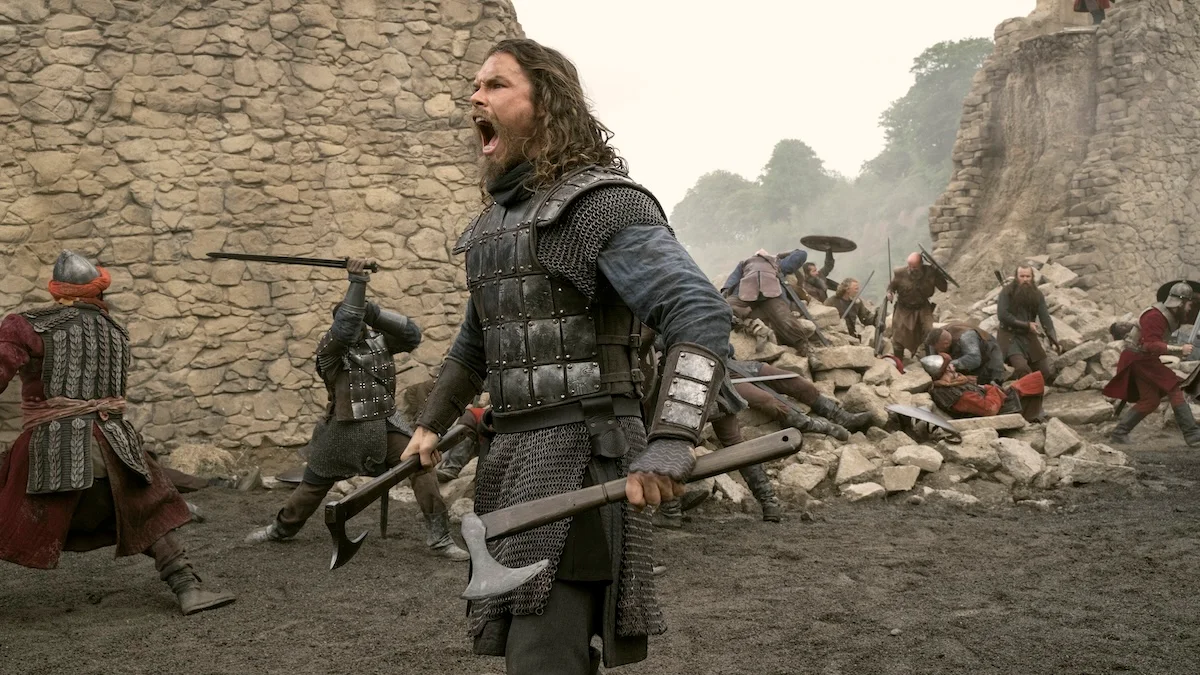VIKINGS: VALHALLA Season 3: In Search of the Golden Land [REVIEW]

A year and a half after the second season aired, Netflix is releasing the continuation, which was already known to be the series finale. Therefore, viewers expected a closure of the storylines – Leif, Harald, and Freydis were finally supposed to find their destinies and achieve their journey’s goal. I can’t reveal in this review whether they achieved it, but I can say that I did not find satisfaction upon reaching the finale. Three seasons are generally too short for an adventure series. The finale would have resonated much better if the adventure had been longer, allowing room for both epic battles and courtly intrigues, as well as the character development of the protagonists. In this situation, it feels like we are just skimming the surface like Vikings longships, without delving into the nuances that could shed new light on the legendary Norsemen.
From the first episode, it’s clearly stated that the action takes place seven years later, making the events of the previous chapters seem irrelevant. On one hand, this is good for those who forgot the details of the earlier seasons. On the other hand, if we liked these characters, how are we supposed to engage with them when they are seven years older, with new motivations and slightly different personalities due to their years of experience? This is a simple narrative device – instead of showing a gradual and therefore convincing progression of the characters, the creators opted for a “seven years later” maneuver, drowning the previous work of the writers in the ocean. I understand that this was necessary to introduce a new generation, such as Knut’s sons who were to take over his power. It would have worked better with fewer plotlines or more seasons.

The most interesting storyline this season is that of Harald Sigurdsson (Leo Suter), who is the commander of the Varangian Guard in the service of the Byzantine Emperor Romanos III Argyros (Nikolai Kinski, the son of the famous Klaus). His romance with the emperor’s wife, Zoe (Sofya Lebedeva), has a plot justification and is part of an intriguing story that complements historical events well. Harald also finds a worthy opponent in the Greek general Maniakes (Florian Munteanu), which makes the anticipated duel between them highly engaging. However, the problem is that the characters constantly talk about their destinies, and for Harald, the goal is the throne of Norway, which makes the intrigue in Constantinople less gripping than it should be.
Leif Eriksson’s character (Sam Corlett) on paper seems sensibly invented as he provides an interesting contrast to the warrior Vikings. Leif leans towards learning and becomes a proponent of the theory that power of mind is more important than muscle strength. Unfortunately, this storyline is not characterized by intellectual strength – I would even say it is foolish. After capturing Syracuse, Leif finds a library and in it, a random map that reminds him of a place where he saw the Golden Land. Seeking answers, he arrives on the Greek island of Corfu and, after an unnecessary episode with a nun, finds the creator of the map – the first person he asked about it. Leif’s fascination with science leads to the creation of a destructive weapon, whose immense power is demonstrated in one of the early episodes. According to the setup/payoff film technique, this motif returns in the finale. This makes the ending spectacular but more suited to science fiction or fantasy than an adventure production about Vikings.

The series unfolds in times when pagan Vikings were nearly entirely pushed to the margins by Christian adherents. It seemed obvious that an essential plotline would be the contrast between the desperate defense of the old faith and the growing strength of Christianity. The defender of Norse tradition here is Freydis (Frida Gustavsson), called the last daughter of Uppsala, and her most dangerous opponent is Saint Olaf’s son, Magnus (Set Sjöstrand). Freydis’s journey from Jomsborg through Greenland, where she conflicts with Erik the Red (Goran Višnjić), to Kattegat seems like merely ticking off the stages of her journey without any deeper meaning. Magnus’s behavior also doesn’t make the events credible, and the religious conflict motif feels rather weak.
Knut the Great’s (Bradley Freegard) storyline is reasonably convincing, less so his relationship with his wife Emma (Laura Berlin), but more so his dealings with the Church. The Viking wants to legitimize his kingdom but is despised by the pope’s nobles for building his empire on bloody foundations. Such an accusation in those times is hypocritical. Godwin (David Oakes) presents below his potential, intended as a powerful earl and high-class schemer, who in the final series contributes little to the plot. It is worth mentioning that Marcin Dorociński, who played the Rus ruler, Yaroslav the Wise, in the previous season, reprises his role in the third chapter. But only in two scenes set in Constantinople, one of which is quite significant as he informs Harald about Freydis’s fate. In the process, it comes to light the great trust the Viking placed in Yaroslav, sending him wealth to Novgorod for safekeeping, which he accumulated during his service to the Byzantine emperor. This motif aligns with historical accounts.

Leif Eriksson is, according to legend, the first European to settle in America, and the series plot moves towards bringing him closer to this Golden Land. If there is a grain of truth in these legends, this land in reality turned out to be a disappointment, as the Vikings did not put down roots there. Similarly, the reception of this season feels like a long wait for the series finale, akin to searching for the Golden Land, which turns out to be visually pleasing but average in terms of the elements that make one want to stay longer. There is a lack of appropriate atmosphere, no flesh-and-blood people, just colorless, depthless figures. It is simply bland and unremarkable.
The production’s advantage is the abundance of picturesque locations where the action takes place – from Constantinople to Greenland, from Sicily to Kattegat, passing through Rome, Corfu, Jomsborg, Denmark, Norway, and Normandy. However, eight episodes are too few for such an epic adventure across Europe. Visually, these locations look excellent, but there are relatively few interesting events. The most engaging storyline is that of Harald Sigurdsson – one of the most unusual things that stands out is the use of birds as self-guiding fire starters. Also notable are Knut’s audience with the pope, the fall of Jomsborg, and the Midsommar celebration in Denmark, though the latter is memorable mainly because it evokes another film. In terms of battles, the best one is the season-opening siege of Syracuse, which actually took place in 1040. Surprisingly, there is no grand battle at the end – the fight for the Norwegian throne between Magnus and Harald is limited to the last episode, lacking dramatic buildup and evoking little emotion.
Either Netflix failed by demanding the story conclude in three seasons, or showrunner Jeb Stuart couldn’t harness the potential in the Saga of the Greenlanders. The series did not turn out to be the Golden Land but rather a semi-barren land that ultimately yielded disappointing results.

